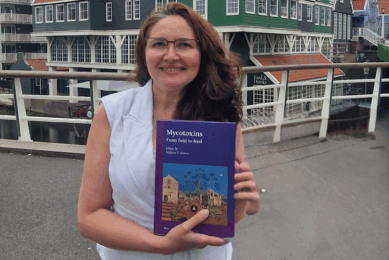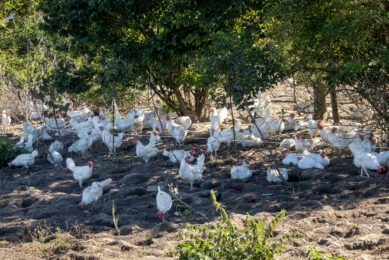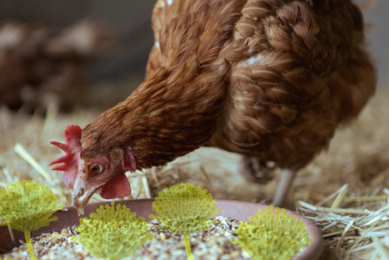CODA-CERVA to study problem of Fusarium mycotoxins
The CODA-CERVA (Veterinary and Agrochemical Research Centre) in Belgium initiated a new project to study the presence of Fusarium mycotoxins and animal and human carry over. The project – called Mycotoxpluim – will run till January 2012.
In order to study the transfer of Fusarium mycotoxins (Deoxynivalenol (DON), T2, Zearaleon (ZEA), Enniatine-B and BEA) from animal feed to poultry products, first a multi-mycotoxin liquid chromatography mass-spectrometry method has to be developed in order to be applicable to various biological matrices. If necessary, multiple purification methods can be performed, depending on the matrix.
At the second phase, animal tests (feed to which all the studied mycotoxins are added) will be carried out on laying hens and broiler chickens, and the concentrations of mycotoxins in meat, liver, skin and eggs will be determined.
At the third and final phase, monitoring of commercially-available poultry products will take place.
The heavy metals (Lead (Pb), Cadmium (Cd), etc.) in these products will also be measured, since enniatines are able to very easily complex mono and divalent cations, and thereby penetrate the cell membrane.
A number of micro-nutrients will also be determined. It will be possible for the competent authority to use the data obtained to assess any potential risk to the consumer, and to plan the follow-up to the study.
This project is in fact an exploratory study to document the dimensions of the problem of emerging Fusarium mycotoxins.
If it emerges from this study that the issue should be considered with particular relevance for protection of the consumer, a follow-up study can be planned.
Related website: CODA-CERVA











